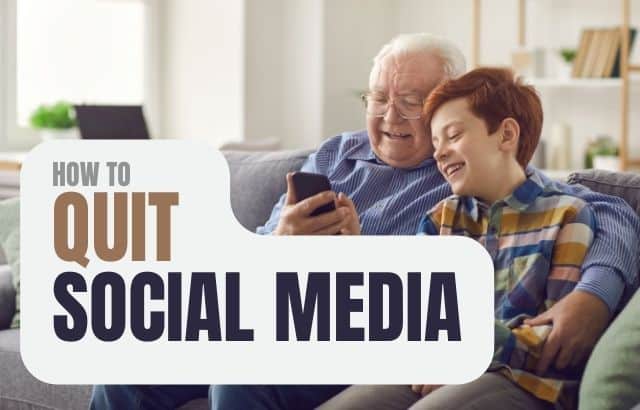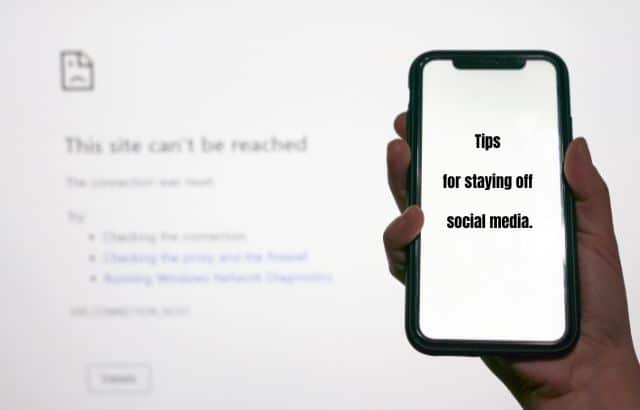Imagine this: you reach for your phone, intending to check the time. But somehow, you find yourself an hour later, mindlessly scrolling through a never-ending feed of perfectly curated vacations, delicious meals, and seemingly flawless lives. This, my friends, was my reality for years. I was trapped in the vortex of social media, constantly comparing my behind-the-scenes life to everyone else’s highlight reel.
Imagine this: you’re at a dinner party, a vibrant conversation flowing around the table. But instead of engaging, you find yourself glued to your phone, mindlessly scrolling through perfectly curated feeds. A familiar pang of inadequacy washes over you – everyone else seems to be living a life far more exciting than yours.
A recent study by the Pew Research Center found that 72% of adults in the United States admit to checking social media at least once a day, with 35% reporting checking it several times a day. But what happens when this constant connection starts to negatively impact our well-being? Research published in the Journal of Experimental Psychology: General found a correlation between increased social media use and feelings of loneliness and depression.
That’s when I knew something had to change. Taking a break from social media wasn’t easy, but it was one of the best decisions I’ve ever made. In this post, I’ll share the steps I took to break free and offer tips on how you can ditch the scroll and reclaim your time and mental space.
Social media has become a ubiquitous part of modern life, but it’s not always a positive influence. If you’re feeling overwhelmed or stressed by the constant barrage of information and social pressure, it might be time to consider quitting social media altogether. In this guide, we’ll explore the benefits of disconnecting from social media and provide tips for making the transition as smooth as possible.
Table of Contents
The Negative Effects of Social Media On Mental Health.
While social media can be a great way to connect with others and stay informed, it can also have negative effects on mental health. Studies have shown that excessive social media use can lead to feelings of anxiety, depression, and loneliness. The constant comparison to others and pressure to present a perfect image can also contribute to low self-esteem and body image issues. It’s important to be aware of these potential negative effects and take steps to protect your mental health.
The Benefits of Quitting Social Media.
Quitting social media can have many benefits for your mental health. It can reduce feelings of anxiety and depression, improve sleep quality, and increase productivity. Without the constant distraction of notifications and scrolling, you may find that you have more time for hobbies, exercise, and spending time with loved ones. Additionally, quitting social media can help you focus on building more meaningful relationships and connections in real life.
Steps to Quit Social Media.
Quitting social media can be a personal choice and a transformative experience. Here are some steps to help you begin your journey:
1. Reflect and set intentions: Take the time to reflect on why you want to quit social media. Define your goals and what you hope to achieve by disconnecting from these platforms. This clarity will help you stay motivated.
2. Create a plan: Establish a concrete plan to limit or eliminate your social media usage. Set specific time limits, schedule designated offline activities, and gradually reduce your screen time.
3. Find alternative activities: Discover new hobbies, engage in physical activities, spend quality time with loved ones, or explore your creative side. Invest your time and energy in things that bring you fulfilment and joy.
4. Remove triggers: Remove social media apps from your phone or disable notifications. Unfollow accounts that make you feel anxious or unhappy. Set boundaries and create a healthy digital environment for yourself.
5. Seek support: Share your decision with friends and family who can offer encouragement and hold you accountable. Consider joining support groups or online communities that focus on minimizing social media usage.
6. Practice mindfulness: Be present in the moment and cultivate mindfulness. Engage fully in activities without distractions, and be aware of the impact social media has on your mental and emotional well-being.
7. Celebrate achievements: Acknowledge and celebrate your progress along the way. Recognize the positive changes and benefits that come from staying off social media.
Remember, quitting social media is a personal journey, and it may take time to adapt to a life without it. Embrace the opportunity to rediscover yourself, nurture real-world connections, and find a healthier balance between the digital and physical aspects of your life.
How to Replace Social Media With Healthier Habits.
Quitting social media can be challenging, but replacing it with healthier habits can make the transition easier. Instead of scrolling through your feed, try reading a book, going for a walk, or practicing mindfulness. These activities can help reduce stress and improve your overall well-being. It’s important to find activities that you enjoy and that make you feel good. Remember, quitting social media is about taking care of yourself and finding balance in your life.
Tips For Staying Off Social Media.
Staying off social media can be difficult, especially if it has become a habit. Here are some tips to help you stay off social media:
1. Delete social media apps from your phone.
2. Use website blockers to limit your access to social media sites.
3. Find alternative activities to replace social media, such as reading, exercising, or spending time with friends and family.
4. Set boundaries with yourself and others about when and how often you will use social media.
5. Seek support from friends, family, or a therapist if you are struggling to stay off social media.
Quit Social Media Quotes
Here are five unique quotes on quitting social media, along with explanations, strategies for quitting, execution plans, and FAQs:
-
“Disconnect to reconnect: Real life is calling, and it’s time to answer.”
- Explanation: This quote highlights the importance of prioritizing real-life connections over virtual ones and emphasizes the value of being present in the moment.
- Strategy: Set boundaries by allocating specific times for social media use or designate tech-free zones in your home. Replace social media time with activities that promote connection and well-being, such as spending time with loved ones or pursuing hobbies.
- Execution Plan: Start by gradually reducing your social media usage and replacing it with offline activities. Experiment with different ways to fill your time and assess how they make you feel. Seek support from friends or join communities focused on digital detoxing for accountability and encouragement.
-
“Unfollow distractions, follow your dreams: Your time and attention are precious commodities.”
- Explanation: This quote underscores the importance of curating your online environment to support your goals and aspirations, rather than being inundated with distractions.
- Strategy: Conduct a digital declutter by unfollowing accounts that don’t align with your values or contribute to your well-being. Use social media mindfully by following accounts that inspire and educate you.
- Execution Plan: Audit your social media feeds and unfollow accounts that promote comparison or negative emotions. Use the saved time and energy to invest in personal development or pursue activities that bring you joy and fulfillment. Keep a journal to track your progress and reflect on the positive changes you experience.
-
“Log off to log in: Rediscover the world beyond the screen and reclaim your time.”
- Explanation: This quote encourages individuals to log off from social media to log in to their lives fully, fostering deeper connections and experiences.
- Strategy: Implement digital detox days or weekends where you abstain from using social media altogether. Practice mindfulness and presence in everyday activities, such as meals or conversations.
- Execution Plan: Schedule regular digital detox periods and use the time to engage in activities that nourish your mind, body, and soul. Plan tech-free outings with friends or family to explore nature or engage in creative pursuits. Reflect on the benefits of disconnecting and prioritize offline experiences.
-
“Choose freedom over FOMO: Break free from the cycle of comparison and embrace your unique journey.”
- Explanation: This quote encourages individuals to prioritize their mental well-being and self-worth over the fear of missing out (FOMO) perpetuated by social media.
- Strategy: Practice gratitude and self-compassion to cultivate contentment with your own life and accomplishments. Set intentions for social media use and be mindful of triggers that lead to comparison or dissatisfaction.
- Execution Plan: Create a gratitude journal to acknowledge and appreciate the blessings in your life. Set boundaries by limiting social media usage to specific times or purposes. Seek support from friends or a therapist to address underlying feelings of inadequacy or comparison.
-
“Reclaim your attention, reclaim your life: Break the cycle of digital distraction and focus on what truly matters.”
- Explanation: This quote underscores the importance of reclaiming control over your attention and energy, redirecting them towards meaningful pursuits and relationships.
- Strategy: Practice digital minimalism by removing unnecessary apps or notifications that demand your attention. Prioritize activities that align with your values and contribute to your personal growth and well-being.
- Execution Plan: Conduct a digital detox challenge by gradually reducing your screen time and increasing time spent on offline activities. Set specific goals for how you want to invest your time and attention, such as reading, exercising, or spending quality time with loved ones. Monitor your progress and adjust your habits as needed.
Final Thoughts
Every time we get diverted with a notification beep, it breaks our chain of thoughts, especially while trying to focus on a crucial task. This can negatively impact our productivity.
To enable this, you got to set up a lock on certain apps, which allows you to set a time limit as to how much time you spend there.
Finally, turn off notifications from useless apps that do not add any value.
Declutter your phone & enjoy social media hygiene for focus, productivity, creativity, mindfulness & fruitfulness-Concludes Hirav Shah, Noted Business Enhancement Expert and Business Advisor.
FAQs about Quitting Social Media:
Q1: Will quitting social media negatively impact my social life or relationships?
- A1: Not necessarily. Quitting social media can provide opportunities to strengthen offline connections and foster deeper relationships. Consider reaching out to friends and family directly to maintain communication outside of social platforms.
Q2: How do I cope with feelings of loneliness or FOMO after quitting social media?
- A2: Practice self-care and engage in activities that bring you joy and fulfillment. Seek support from friends or join offline communities and clubs to meet new people and explore shared interests.
Q3: What are some alternatives to social media for staying connected and informed?
- A3: Consider using messaging apps or email to communicate with friends and family. Get involved in local community events or volunteer opportunities to stay connected and informed about current events.
Q4: How can I resist the urge to return to social media after quitting?
- A4: Create a support network of friends or accountability partners who can encourage and motivate you on your journey. Remind yourself of the reasons why you decided to quit and focus on the positive changes you’ve experienced.
Q5: Is it possible to use social media in moderation, or is quitting the only option?
- A5: It depends on your individual preferences and goals. Some people may find it beneficial to use social media in moderation, while others may choose to quit altogether. Experiment with different approaches and assess what works best for you and your well-being.
By incorporating these quotes, strategies, execution plans, and FAQs into your journey of quitting social media, you can reclaim your time, attention, and well-being, ultimately leading to a more fulfilled and balanced life offline.


























